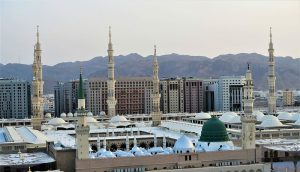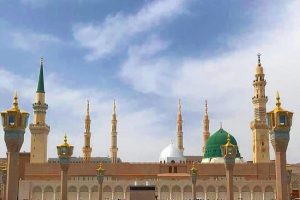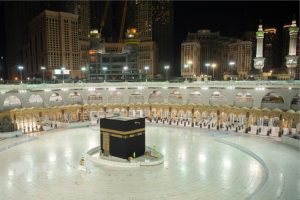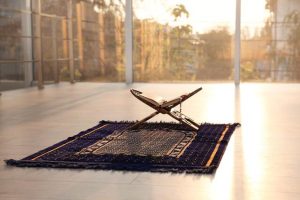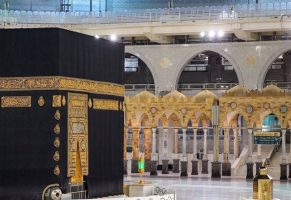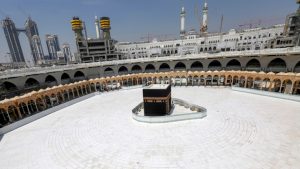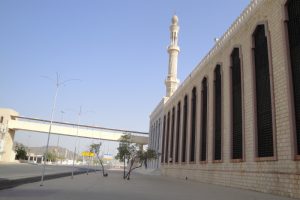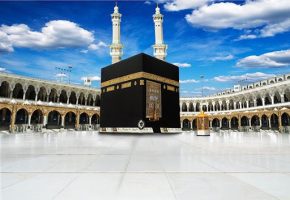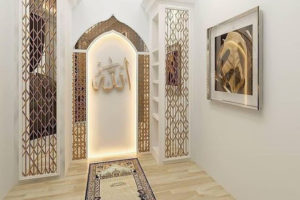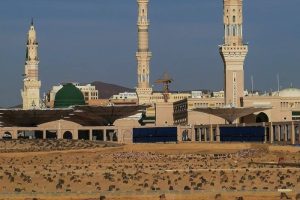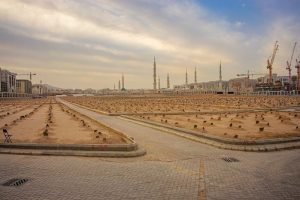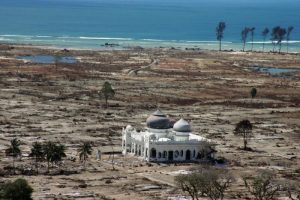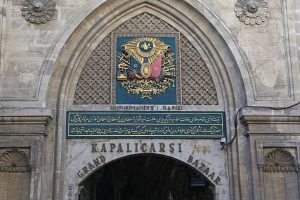Hazrat Ali (radhiyallahu ‘anhu) reports: On one occasion, I had fallen ill. While I was ill, Rasulullah (sallallahu ‘alaihi wasallam) came to visit me. When Rasulullah (sallallahu ‘alaihi wasallam) entered my home, I was lying down. Seeing me in this state, Rasulullah (sallallahu ‘alaihi wasallam) came close to my side …
Read More »Recent Posts
December, 2023
November, 2023
-
29 November
Hamzah and the Holiday
Download Audio Here Ask our children: How should we spend our time in the holidays? If someone is waiting for us but we are not going to go and see them, then what should we do? What type of friends should we have? What happens to a person who has …
Read More » -
27 November
The Importance of Keeping One’s Parents Happy
Hazrat Shaikh Moulana Muhammad Zakariyya (rahmatullahi ‘alaih) once wrote the following to a person whose parents were displeased with him for some reason and had complained to Hazrat Shaikh (rahmatullahi ‘alaih) regarding him. Hazrat Shaikh (rahmatullahi ‘alaih) said: I am extremely saddened to hear that your father is currently displeased …
Read More » -
27 November
The Bravery of Hazrat Ali (radhiyallahu ‘anhu) in the Battle of Khaibar
On the occasion of Khaibar, after Rasulullah (sallallahu ‘alaihi wasallam) handed the flag of Islam to Hazrat Ali (radhiyallahu anhu), Hazrat Ali (radhiyallahu anhu) led the army of the Sahaabah (radhiyallahu anhu) to the fortress of Qamoos. As they approached the fortress, a Jewish warrior, by the name of Marhab, …
Read More »
-
Hazrat Abdullah bin Mas’ood (radhiyallahu ‘anhu) killing Abu Jahl
After the Battle of Badr was fought and Rasulullah (sallallahu alihi wasalllam) and the Sahaabah …
Read More » -
An Interesting Dialogue Regarding the Belief of the Qur’aan Majeed – The Orchards of Love – Part 94
-
The Islam of Hazrat Abdullah bin Mas’ood (radhiyallahu ‘anhu)
-
Rasulullah (sallallahu ‘alaihi wasallam) Praising the Recitation of Hazrat Abdullah bin Mas’ood (radhiyallahu ‘anhu)
-
The Compassion of Allah Ta‘ala – The Orchards of Love – Part 93
-
Receiving Seventy Rewards
Hazrat Abdullah bin Amr bin Aas (radhiyallahu ‘anhuma) reported, “Whoever sends salutations upon Nabi (sallallahu ‘alaihi wasallam) once,...
Read More » -
Increase in Sustenance
-
The Reward of Fasting on the Day of Arafah
-
The Angel that Stands at the Blessed Grave of Hazrat Rasulullah (sallallahu ‘alaihi wasallam) to Convey the Durood of the Ummah
-
Reciting Durood when Entering the Musjid
-
Sunnats and Aadaab when dealing with neighbours – 1
Islam has afforded special rights to neighbours and commanded Muslims to uphold these rights. In …
Read More » -
Sunnats and Aadaab of the Guest – 5
-
Sunnats and Aadaab of the Guest – 4
-
Sunnats and Aadaab of the Guest – 3
-
Sunnats and Aadaab of the Guest – 2
-
Hazrat Umar bin Khattaab (radhiyallahu ‘anhu)
Hazrat Umar (radhiyallahu ‘anhu) is the second khalifah of Islam and the greatest person of …
Read More » -
Hazrat Ali (radhiyallahu ‘anhu) – Part Forty-One – Being Sent by Rasulullah (sallallahu ‘alaihi wasallam) to Level the Graves, Destroy Idols and Erase Pictures
-
Rasulullah (sallallahu ‘alaihi wasallam) Approving of the Verdict of Hazrat Ali (radhiyallahu ‘anhu) – Part Forty
-
The True Ulamaa – Hazrat Ali (radhiyallahu ‘anhu) – Part Thirty Nine
-
Du‘aa for Assistance in Settling Debts – Hazrat Ali (radhiyallahu ‘anhu) – Part Thirty Eight
 Ihyaaud Deen An Effort to Revive Deen in Totality
Ihyaaud Deen An Effort to Revive Deen in Totality



























